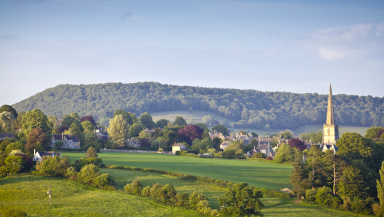
The day after Pentecost Sunday is called Whit Monday and it played an important part in culture. This is the story …
Whit Monday
Pentecost is also called Whit Sunday and depending on your tradition the day after it is called Whit Monday, or Pentecost Monday, or the Monday of the Holy Spirit. The week after Whit Sunday was traditionally called Whitsuntide. This commemorates the descent of the Holy Spirit upon the disciples as described in Acts 2:15-47. In the Eastern Orthodox traditions, Whit Monday is dedicated to honouring the Holy Spirit and is marked with special hymns and liturgies. Whit Monday marks the end of the Easter season and the beginning of what is sometimes called “Ordinary Time” for churches which use a liturgical calendar.
Unusually, in 2025 the Eastern and Western calendars of the Church have Whit Monday on the same day, on 9 June.
Whit Monday eventsIn Britain and Ireland, Whit Monday was associated with community events, and in some places parades and parties. When the Bank Holiday Act of 1871 established British Bank Holidays, Whit Monday was one of these first British Bank Holidays. In industrial towns of northern England, Whitsuntide was often chosen for "wakes week", when factories and shops closed for maintenance and workers took a holiday. People often took outings or went on holiday to the seaside. In other places schools closed for Whitsuntide which is the origin of the May half-term week. It was the custom to buy new clothes for Whitsun, and shops would advertise Whitsun dresses.In past times some towns held Whit Fairs, which are now rare, were held in towns and villages with competitions and dancing. In mediaeval times, churches brewed and sold special ales for the occasion called Whit Ales.
In the Victorian era it became common on Whit Monday for Sunday Schools to go on parades carrying banners through the towns and villages. They then finished with a big party in the rectory garden, the local park, on the common, or a meadow. In some places all the churches of different traditions would come together for a big party, because Pentecost was considered the birthday party for the Church. In other places the Anglicans and the Free Churches might have separate events, when typically, groups like the Methodists, Baptists and Congregationalists got together. In the north of England these would often feature brass bands and processions called ‘Whit Walks’. Some ancient Whit Monday folk traditions survive in some pockets of England. For centuries, the village of Bampton in Oxfordshire has come alive on Whit Monday with Morris dancers. In the village of Whaddon in Cambridgeshire, men sing a special Whitsun song while carrying oak branches.
National HolidayWhit Monday is still a national holiday in many countries notably in Europe in Austria, Belgium, Denmark, France (where it is called ‘Lundi de Pentecôte’), Germany (where it is called ‘Pfingstenmontag’), Hungary, the Netherlands (where it is called ‘Tweede Pinksterdag’, which means the Second Pentecost Day), and Norway. For most people the religious significance is lost, and it is often a convenient long weekend which many people use to go away.
Spring Bank Holiday Monday
From 1965, the British government fixed the Bank Holiday as the last Monday in May and Whit Monday became Late May or Spring Bank Holiday. In 1971, the late May Bank Holiday happened to be Whit Monday, but now these are almost always different dates. Some people still colloquially refer to the Late May Bank Holiday Monday as “Whit Monday” but technically these are now different days most years. Next year, in 2026 the Late Spring Bank Holiday will be on 25 May, which will be Whit Monday.













